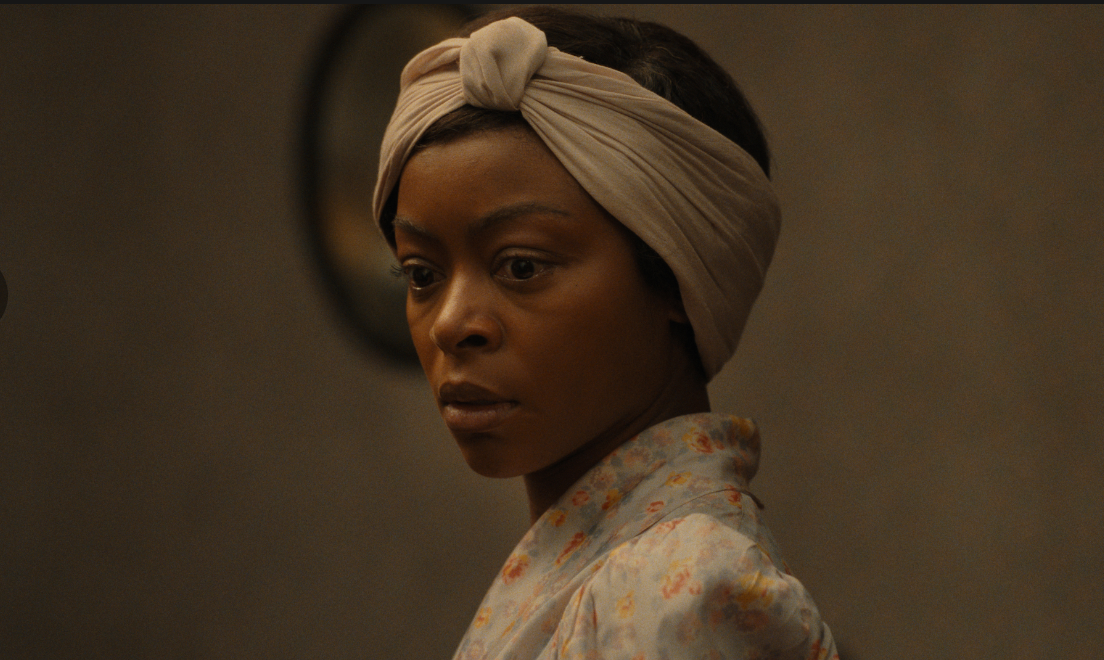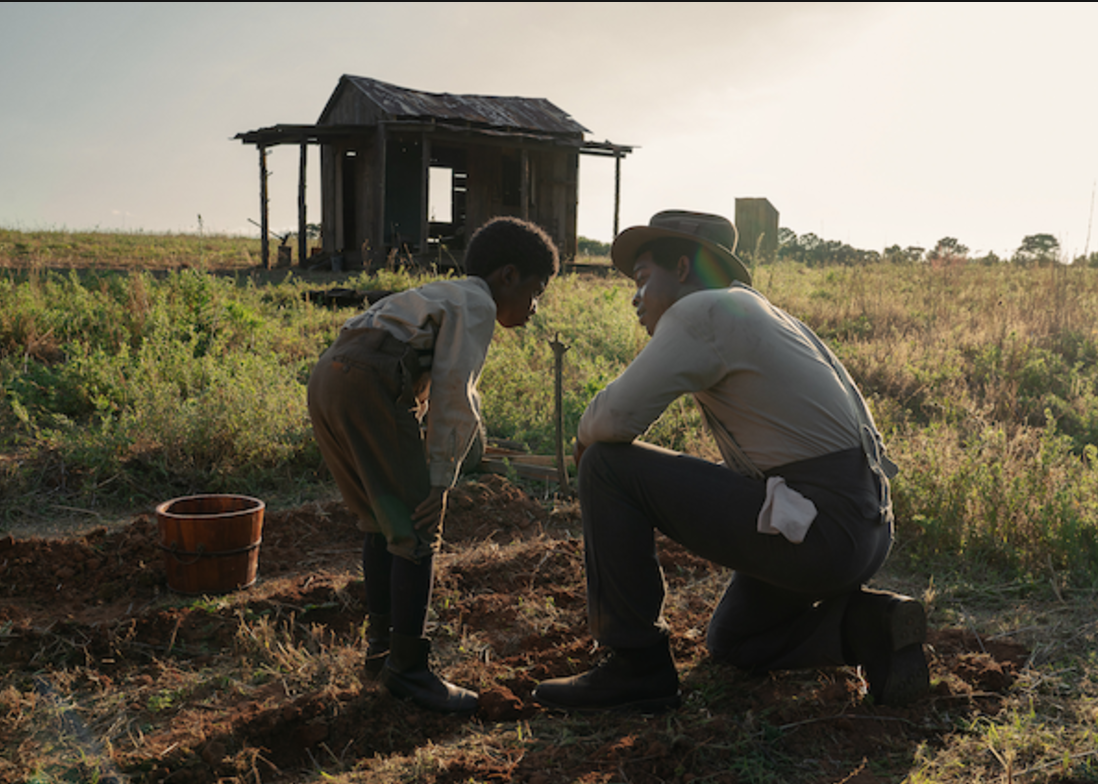Denzel Washington may not have said so outright, but it’s clearly been his mission in recent years to bring the plays of the legendary Black playwright August Wilson to film. Since 2016, with Fences (which Washington produced, directed, and starred in), Denzel has brought three adaptations of Wilson’s work to film. Ma Rainey’s Black Bottom followed Fences in 2020 (with Washington as producer only). Now, just this weekend, Netflix debuts the third of Wilson’s plays that Washington has made into a movie, The Piano Lesson.
While Washington has stewarded all three projects, The Piano Lesson is a true Washington family affair. Denzel serves as producer, his daughter Katia as executive producer, his son John David in a critical supporting role, his other daughter Olivia in a small but significant part, and most importantly, his youngest son Malcolm as director and co-writer. The Piano Lesson is a true family affair, with Washington and all four of his children throwing themselves into the film with total investment.
Set in rural Pittsburgh in the mid-1930s, just after the Depression, The Piano Lesson unsurprisingly explores generational trauma, the desire to exert control over one’s own destiny, and the desire to leave a legacy through property ownership.
That last point about property is the one that stuck with me most as I was watching the film. The history of the United States of America and who pulls its levers is primarily about inherited wealth. For those of color from the slave ships through Jim Crowe and redlining, property ownership has only recently become a genuine opportunity for Black people in this country. Wealth gets passed down through the ages in the form of land, but what if you have no right or capacity to own property? That is a question Black people have faced for more than two hundred years, and it is the linchpin upon which The Piano Lesson plays out.
Boy Willie (John David Washington, who has never sounded more like his dad) has saved up some money and has a huge truck full of watermelon to sell. If he can get his sister Berniece (Danielle Deadwyler looking to get that Oscar nomination she was denied in Till) to sell the piano that has been in their family for more than a generation, Boy Willie can put his savings and watermelon sales together to buy that parcel of land.

In its way, the piano doesn’t just lead to the possibility of generational wealth; it is the generational wealth of the Charles family. The trouble is Berniece doesn’t want to part with the piano even though she hasn’t touched a key since her mother died. The reasons are not as sentimental as you might think. The piano came into their possession through their ancestor’s slave owner, who traded a woman and her child for it—both members of the Charles family. A remaining member of the Charles family, a gifted hand carver, etched the faces of his family all over the piano. A result that the lady of the plantation house loved because it made her feel closer to her slaves.
That’s some grim business, but as family heirlooms go, it’s the only one the Charles family has. If my description of the history of the piano sounds dark, to hear Samuel L. Jackson’s patriarch of the Charles family, Uncle Doaker, tell it is really something. It’s Jackson’s best moment on film in many years—a reminder of how great he can be when he isn’t playing a version of the Samuel L. Jackson persona.
Doaker is well over the piano and would just as soon see it gone. Still, he knows Berniece will not part with it, which sets off a battle of wills between the practical intentions Boy Willie has for the piano and Berniece’s painfully sentimental and superstitious defiance. All three of Washington’s Wilson-related films deal with ghosts and spirits, but The Piano Lesson is the first to show the supernatural manifesting into the film’s reality. Berniece starts seeing the ghost of Sutter, a descendent of the Charles family slave owners who fell down a well, leading (most ironically) to the availability of the land.

As with any play turned into a film, the challenge is typically to open up the movie so it doesn’t feel stagey. There are times when you can feel the constraints of the source material, but Malcolm Washington makes multiple efforts to move the film out of the Charles home. The first scene shows Boy Willie and his sweet friend Lyman (Ray Fisher) push-starting the truck full of watermelons down the road. We also see Boy Willie and Lyman selling the melons out of the back of the truck. An extended club scene also keeps the film from feeling claustrophobic. The best moment of this kind is a scene where an older man explains the difference between dirt and land as soil runs through his fingers.
Malcolm proves to have skill shooting interiors too. There’s a scene of several family members pounding on the table in rhythm, singing an old railroad-type chant. The sequence is so well-rendered that you don’t want it to stop even as it goes on for a healthy length of time. You can feel the history of the chant in their voices and the sound of their fists hitting the table—this song was used to create joy when their ancestors were surrounded by nothing but pain.
Malcolm’s work with his top-tier crew of actors is also highly notable. These are talented actors, one and all, and the filmmaker makes the most of them. Director Washington gets what may be career-best work from his brother John David (depending on how you feel about JD’s work in Spike Lee’s BlacKkKlansman), performs a Samuel L. Jackson acting resurrection, and lets Deadwyler bring the film home with aplomb.
There are back-to-back scenes of the local preacher (Corey Hawkins) and Lyman attempting to squire Berniece, who is not ready for a new husband or lover and may never be because of the internal scars she carries. Preacher Avery’s approach is at first tender and practical (Berniece is middle-aged and raising a child) but runs afoul when he insists she needs a man to take care of her. A defiant Berniece takes the preacher to task, exclaiming, “You trying to tell me a woman can’t be nothing without a man.” She then points out that no one ever says that to a man. It’s a moment that reverberates beyond the period the film is set in.
Lyman’s come-on to Berniece is more effective. His sweetness, sadness, and tenderness stir Berniece, and yet she denies herself what would at least be a night of pleasure because she is so attached to her pain. It’s a heartbreaking sequence for both characters.
The film’s climax fully embraces the supernatural. Sutter’s ghost appears, and the house begins to shake as if a train were running through the front yard. The chaos and terror are both palpable as the preacher tries to remove Sutter’s presence from the house through holy water and scripture. As his efforts fail, Berniece must turn to the cursed piano, open up the hood, touch those keys, and attempt to exorcize the ghosts of a long-running family trauma.
The Piano Lesson is one fine film for a first-time director. The plays of August Wilson are not naturally cinematic. While Malcolm Washington’s film can sometimes feel workmanlike, there’s plenty of potential in his direction, some of which is delivered in this film.
Of the three Denzel-produced films based on Wilson’s plays, I would put The Piano Lesson third in line. As tremendous as Deadwyler is in the film, the soaring work of Denzel and Viola Davis in Fences, and the wrenching railing against a god who had forsaken the actor and the dying man that was Chadwick Bozeman in Ma Rainey elevated those two films to starrier heights.
But there’s no shame in making a film that is not quite as good as Fences or Ma Rainey’s Black Bottom. It’s one damn fine bronze medal.


![2025 Oscars: Mohammad Rasoulof Risked Personal Freedom For Cinematic Freedom With ‘Sacred Fig’ [VIDEO]](https://thecontending.com/wp-content/uploads/2024/11/Screenshot-2024-11-22-at-10.15.16 PM-75x75.png)






